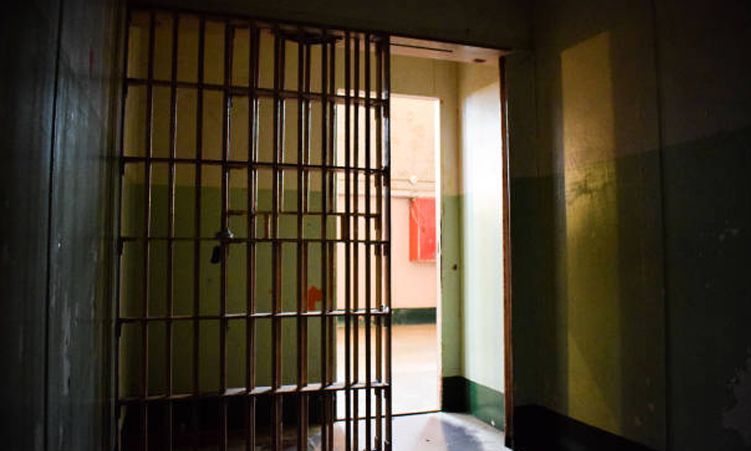GOVERNMENT plans to crack down on its housing defaulters and institute claims for debts against their pensions.
The claims, through the Ministry of Finance, will make sure that all those who failed to pay rent or municipal bills while living in Government houses will be brought to book. This was spelled out in no uncertain terms by Works Minister Joel Kaapanda in the National Assembly this week.Kaapanda’s stern warning came after the National Assembly adopted recommendations made by the parliamentary Public Accounts Committee on how Government should deal with illegal occupants, non-paying tenants and the deterioration of its houses and flats.The Committee’s report painted a picture of a state of near anarchy in the realm of State property.Kaapanda this week told the National Assembly that many occupants fail to pay their outstanding municipal bills before vacating Government houses.They also fail to inform the Ministry’s housing committee when they vacate the houses so that the condition of properties can be inspected before they are reassigned.In many cases people just give the incoming tenants the house keys without informing the committee, and the Ministry is forced to settle their outstanding bills, which contributed to overspending, Kaapanda said.”Clear policy directives governing Government fixed assets shall be developed by a competent expert to introduce a computer system that interfaces with other line ministries to ensure effective rental collection, track down staff movements and monitor rentals paid through line ministries.”Kaapanda said all new and old occupants in Government quarters would be required to pay a deposit of N$300 (single) and N$500 (family) “to discourage and fight the deeply rooted habit of the illegal transfer of keys between officials”.The parliamentary Public Accounts Committee, chaired by DTA’s Johan de Waal, recommended that the Ministry of Works urgently introduce new strategies to improve the current administration, management and maintenance of fixed assets and submit such a plan to the committee within three months.It said the Ministry of Works couldn’t claim to be in control of its fixed assets despite having spent N$2 million on compiling a fixed-asset register.De Waal said Ministry officials did not even know how many Government quarters fell under its control.While the committee was informed that the Ministry was managing 4 050 units, the Auditor General’s report for 2002 revealed that in fact it was as many as 8 354 units.De Waal said the committee was not convinced that Government figures on the number of illegal occupants occupying State properties reflected the true state of affairs.According to what the committee was told, only 16 Government properties in Windhoek were illegally occupied.Kaapanda said the conflicting information about the number of housing units had compelled his Ministry to invite all tenants to reapply for the same official quarters for a window period of eight months.Those who failed to do so in eight months would risk losing their units because it might be assumed that the quarters were empty.Kaapanda said the Ministry did spot checks at the end of last year and issued eviction orders to illegal occupants to vacate the units within three months.”To our disappointment, some of these eviction notices were ignored,” he said.The Ministry has since approached the Ministry of Justice to institute legal procedures to obtain another set of eviction orders against the illegal occupants.He also revealed an astonishing fact that none of the civil servants in the Ministry of Works quarters at present have signed leases for the units they occupy.This was spelled out in no uncertain terms by Works Minister Joel Kaapanda in the National Assembly this week.Kaapanda’s stern warning came after the National Assembly adopted recommendations made by the parliamentary Public Accounts Committee on how Government should deal with illegal occupants, non-paying tenants and the deterioration of its houses and flats.The Committee’s report painted a picture of a state of near anarchy in the realm of State property. Kaapanda this week told the National Assembly that many occupants fail to pay their outstanding municipal bills before vacating Government houses.They also fail to inform the Ministry’s housing committee when they vacate the houses so that the condition of properties can be inspected before they are reassigned.In many cases people just give the incoming tenants the house keys without informing the committee, and the Ministry is forced to settle their outstanding bills, which contributed to overspending, Kaapanda said.”Clear policy directives governing Government fixed assets shall be developed by a competent expert to introduce a computer system that interfaces with other line ministries to ensure effective rental collection, track down staff movements and monitor rentals paid through line ministries.”Kaapanda said all new and old occupants in Government quarters would be required to pay a deposit of N$300 (single) and N$500 (family) “to discourage and fight the deeply rooted habit of the illegal transfer of keys between officials”.The parliamentary Public Accounts Committee, chaired by DTA’s Johan de Waal, recommended that the Ministry of Works urgently introduce new strategies to improve the current administration, management and maintenance of fixed assets and submit such a plan to the committee within three months.It said the Ministry of Works couldn’t claim to be in control of its fixed assets despite having spent N$2 million on compiling a fixed-asset register.De Waal said Ministry officials did not even know how many Government quarters fell under its control.While the committee was informed that the Ministry was managing 4 050 units, the Auditor General’s report for 2002 revealed that in fact it was as many as 8 354 units.De Waal said the committee was not convinced that Government figures on the number of illegal occupants occupying State properties reflected the true state of affairs.According to what the committee was told, only 16 Government properties in Windhoek were illegally occupied.Kaapanda said the conflicting information about the number of housing units had compelled his Ministry to invite all tenants to reapply for the same official quarters for a window period of eight months.Those who failed to do so in eight months would risk losing their units because it might be assumed that the quarters were empty.Kaapanda said the Ministry did spot checks at the end of last year and issued eviction orders to illegal occupants to vacate the units within three months.”To our disappointment, some of these eviction notices were ignored,” he said.The Ministry has since approached the Ministry of Justice to institute legal procedures to obtain another set of eviction orders against the illegal occupants.He also revealed an astonishing fact that none of the civil servants in the Ministry of Works quarters at present have signed leases for the units they occupy.
Stay informed with The Namibian – your source for credible journalism. Get in-depth reporting and opinions for
only N$85 a month. Invest in journalism, invest in democracy –
Subscribe Now!










